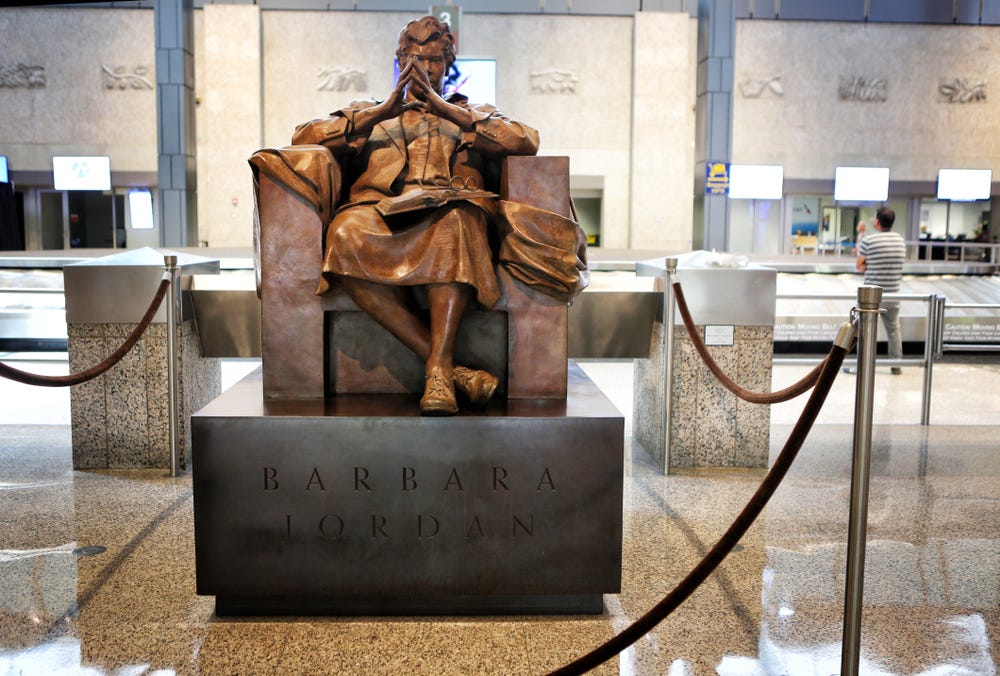E-Pluribus | July 14, 2022
The impact of "social justice" on fighting crime, saving universities, and a liberal icon's words speak to today's woke culture.
A round-up of the latest and best writing and musings on the rise of illiberalism in the public discourse:
Jason L. Riley: The Pursuit of ‘Social Justice’ Is Getting People Killed
If “social justice” is about making the system work for the downtrodden, then Jason Riley of the Wall Street Journal says that its proponents have some explaining to do to crime victims. Riley says the focus on race and numbers is misdirecting law enforcement’s efforts from where they could do the most good, hurting the very people who could use the most help.
Soft-on-crime policies may be one of the more dramatic illustrations of how social-justice activism can backfire to the detriment of its intended beneficiaries, but there are others. Recent efforts to diminish or eliminate education standards effectively amount to giving up on low-income minority children in the name of helping them. Ending use of the SAT in college admissions won’t close the learning gap that the test exposes. It will merely delay the exposure until some future date.
This misguided focus on even or proportionate group outcomes is what distinguishes social justice from traditional concepts of justice, where the focus is on impartial processes. As Thomas Sowell has written, “a defendant in a criminal case would be said to have received justice if the trial were conducted as it should be, under fair rules and with the judge and jury being impartial. After such a trial, it could be said that ‘justice was done’—regardless of whether the outcome was acquittal or execution.” By contrast, “rules and standards equally applicable to all are often deliberately set aside in pursuit of ‘social justice.’ ”
Exempting favored minority groups from academic or behavioral standards that apply to others in society fuels racial tensions and does nothing to address the disparities and gaps that ostensibly motivate social-justice advocates. Permanent welfare-state expansions in the guise of “temporary” pandemic relief will increase dependency and hamper economic growth insofar as able-bodied adults spurn the labor market. By reducing the need for people at the bottom to enter the labor force, a growing welfare state contributes to the economic inequality that liberals never tire of lamenting.
Read the whole thing.
Edgar Capel: Don’t Abandon the University—Save It
Many conservatives plus a growing number of liberals are finding the higher education system in this country to be deeply flawed and in need of reform or, at the extreme, destruction. Writing under the pseudonym Edgar Capel at City Journal, one research university professor argues that the university as an institution is well worth saving and lists a number of ideas to help that happen.
Those who don’t share progressive political commitments understandably feel little enthusiasm for the daunting project of saving academia from itself. Why spend political capital trying to reform dysfunctional institutions in which conservatives have been unwelcome for decades? When progressive journalists justify everything from radical diversity trainings to calls for media censorship with appeals to the authority of ideological “experts,” why lift a finger to help those experts salvage their lost credibility?
But abandoning higher education to permanent progressive dominance would be a calamitous mistake. It would threaten not only to mire scientific progress in muddled groupthink but also to lock conservatives out of many key positions of power and influence. Those without academic credentials cannot prescribe medical treatments, practice law, command an infantry division, or serve on the Council of Economic Advisers. Universities are also the only institutions where young people can receive years of government-subsidized training in demanding technical fields like engineering, medicine, and artificial intelligence, vital engines of our nation’s innovation-driven economy. A few dozen Thiel Fellows notwithstanding, the next generation of American elites will be largely handpicked, educated, and credentialed by American academics.
If surrender is not an option, what else can be done? To date, dissenting legislators and trustees have mostly limited their efforts to sporadic cancellation-style attacks on individual professors whom they find especially irritating. Republican efforts to weaken or end tenure protections at state universities suggest an intention to rebalance academia by picking off liberal professors one by one in headline-generating frontal assaults on academic freedom. This kind of lashing out may be cathartic for the legislators involved, but as a strategy it is futile. It reinforces the GOP’s anti-intellectual image among scholars with wavering political loyalties and dampens public outrage against progressive insiders’ own vastly more far-reaching methods of censorship and political discrimination. Finally, attacks on tenure and academic freedom diminish the prestige of red-state public universities, the very institutions that conservatives have the best hope of reforming.
Read it all here.
Tevi Troy: 30 Years Ago, Liberal Icon Barbara Jordan Denounced Political Correctness
Today’s progressives might find yesterday’s liberals a little too conservative for their tastes. Barbara Jordan, well known and respected liberal of the last century, gave a speech 30 years ago that speaks to our current culture of political correctness, though it now goes by a different name. In Discourse Magazine, Tevi Troy reaches back to 1992 to remind readers that good ideas should never go out of style.
Halfway through her 30-minute speech, Jordan issued a plea for national unity, saying, “We are one, we Americans.” This oneness entailed that “we reject any intruder who seeks to divide us on the basis of race and color.” In words that would not meet approval from today’s progressive left, she added, “We honor cultural identity. We always have; we always will. But separatism is not allowed. Separatism is not the American way.” She continued, “We must not allow ideas like political correctness to divide us and cause us to reverse hard-won achievements in human rights and civil rights.” The crowd, including Steny Hoyer, currently the octogenarian House majority leader and visible in the video, applauded.
Jordan received some criticism from the left for her remarks. Jewell Jackson McCabe of the National Coalition of 100 Black Women accused Jordan of “carrying the water of the strategists that want to bring us back to the right of center in the (Democratic) party.” Despite the grumbles, though, Jordan had accomplished her goal, and that of Bill Clinton, the Democratic presidential nominee. One month earlier, Clinton had criticized the rapper and activist Sister Souljah for incendiary comments against white people. Clinton’s comment created the “Sister Souljah moment,” which is when a politician criticizes an extreme position on one’s own side to gain credibility in the center. Clinton had specifically made [pursuing] racial harmony a goal of his campaign, and Jordan was consciously contributing to his effort.
[ . . . ]
Then, as now, there was pushback against these anti-free-speech tendencies. Generating opposition to PC excesses was perhaps easier at the time as the value of free speech was more universally recognized on both sides of the aisle. As Jordan’s speech demonstrated, the anti-PC drive gained such wide purchase that a progressive heroine like Jordan felt comfortable making the case against political correctness at a liberal gathering like the DNC. But Jordan’s critique from the left was only one of four elements of the fight against political correctness at the time.
[ . . . ]
Today, of course, cancel culture has migrated beyond the universities and is a problem on social media, in corporations, even in American sports. As Andrew Sullivan put it, “We are all on campus now.” It’s clearly more widespread today than PC culture was at its peak, but the lesson of Jordan in the early 1990s is that there is a way to counter these dangerous and divisive forces.
Read it all.
Around Twitter
Conor Friedersdorf engages with a Twitter user over the University of Washington’s treatment of a professor with a dissenting opinion:
A short Wesley Yang thread based on a Tablet Magazine article about the collaboration of educators, nonprofits and philanthropists in shaping young minds:
And finally, the abortion story of the 10-year old from Ohio who was raped has some journalists rethinking journalism standards for a post-Roe America. From the article: “[R]eporters [ . . . ] may have to abandon some conventional journalism wisdom in order to give the stories the attention they deserve.”











